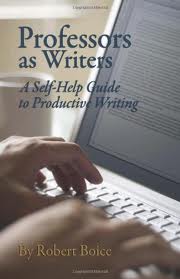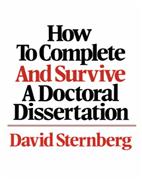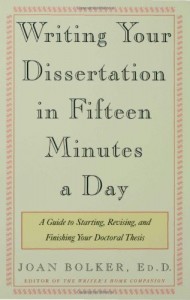I got to thinking about the conservation of one’s personal energy because of a story told by the British historian, Paul Johnson, about his boyhood encounter with the great man, Sir Winston Churchill. The story goes that the precocious young Johnson, in his youthful wisdom, asked Churchill for a piece of advice for life. This in itself shows that Proverbs is right about the fact that wisdom is not an achievement, but an attitude. The boy could hardly be adept in worldly matters, but displayed the right desire—the desire to know, to learn, to be taught. This desire in itself, so it seems, constitutes wisdom. The path to knowledge is wisdom.
A Legend
So much for my panegyrics! On to the story: Apparently Churchill replied to Johnson that “economy of effort” was his most important life principle. Johnson himself recited the 1946 story to the Wall Street Journal a few years ago:
He gave me one of his giant matches he used for lighting cigars. I was emboldened by that into saying, “Mr. Winston Churchill, sir, to what do you attribute your success in life?” and he said without hesitating: “Economy of effort. Never stand up when you can sit down, and never sit down when you can lie down.” And he then got into his limo.[1]
The story might be apocryphal, or at least colored by the passage of time, but it has stuck with me. Two details stand out to me. First, Churchill’s stated idea is in one way confirmed and in another way belied by his own life story. That is, it is said that he used a standing desk[2]—so he didn’t sit whenever he had the opportunity—which seems to fly in the face of his own example of never standing when you can sit down. But lest we think the great Prime Minister a hypocrite, he is also reputed to have taken regular daily naps.[3] Second, Churchill punctuates his dictum with such a hilariously apt embodiment of his stated principle: getting into a limo, the most effortless way to get around.
Conservation of Energy
“Economy of effort” could also be labeled “conservation of energy,” which is how my memory has preserved Churchill’s idea. I suppose it stuck with me that way because of the First Law of Thermodynamics, the law of conservation of energy, which I must have memorized at some point in my schooling. Obviously, there are no physics at work here in Churchill’s idea, only commonsense. That is, a person only has so much energy in a given day, a given workweek, a given lifespan. That energy must be conserved and then deployed at the right time. If you tire yourself out doing the wrong things—say wasting thousands of hours on Facebook—then you have substantially less energy to engage in the right things, like writing the next great American novel or building a treehouse.
Economy of Force
Churchill himself might have borrowed the idea of “economy of effort” from the military strategy idea of “economy of force” proposed by the 19th century Prussian strategist, Carl con Clausewitz.[4] This strategic concept is actually part of U.S. Army doctrine:
Allocate minimum essential combat power to secondary efforts.
A-10. Economy of force is the reciprocal of mass. Commanders allocate only the minimum combat power necessary to shaping and sustaining operations so they can mass combat power for the decisive operation. This requires accepting prudent risk. Taking calculated risks is inherent in conflict. Commanders never leave any unit without a purpose. When the time comes to execute, all units should have tasks to perform.[5]
When thinking in military terms, this makes perfect sense. In war, there’s nothing worse than wasting effort and resources on the wrong objectives. If you leave 1000 troops on guard duty and only take 100 into battle, you might be overwhelmed by superior forces. It’s better to spend little and economize in the areas where you can in order to spend the most resources on the most essential task.
Dissolution
Now to my mind one of the greatest evils of our age is dissolution, the opposite of economy of force. You could call it “dithering” or “procrastinating” or something else, but the point is that so many us of us so much of the time simply waste our time. While it is easy to regard one’s own era as worse than previous ones—and most such regarding is off-base—I do believe that we have seen an uptick in dithering for one simple reason: there are so many new ways to waste time! If you wanted to waste time 100 years ago, you might have to read a long novel or write a silly letter in longhand to an old friend, activities which we would consider highly productive. But now, to waste time, all you have to do is reach in your pocket, pull out the smartphone and wile away the hours on Candy Crush or YouTube or Twitter or texting. A new study from dscout just showed that on average, we are touching our phones 2,617 times per day.[6] While it’s true that some useful, efficient business is conducted via smartphone, the largest share of activity in the study was given over to Facebook.
Concentration of Forces
So what should we do to combat our own dissolution and dithering? Well, I think it goes back to another related military doctrine: concentration of forces. You economize your use of forces in order to concentrate them. The Army also adheres to this doctrine:
Concentrate the effects of combat power at the decisive place and time.[7]
This is what I think most of us struggle with a lot of the time. We have a lot of effort, time and attention to give, but it can easily be squandered on ephemeral pixels rather than on what really matters. If you don’t believe me, have you ever found yourself repeatedly clicking the send/receive button in your inbox? There’s something about digital information that makes us twitchy. It is very easy to fall into a pattern of seeking quick hits of information, looking for some sort of stimulus that will prompt us to act—a new email, a new task, a new article—rather than planning out our strategy from the beginning and concentrating our forces on what we are actually trying to accomplish. Why do you think so many people read internet articles under 1000 words and so few people read long books?
Concentration of Energy
While the Army tries to concentrate military assets “at the decisive place and time,” each of us individually must do the same thing in order to be remotely effective in our own lives. Advertisements, for example, are the precision-strike enemy of our ability to concentrate. They deliberately distract us from our purposes and show us information we didn’t need to know or want to know, about products, prices, services and the like, most of which we don’t need, all of which we don’t need now. That’s why people hate watching TV with commercials and instead binge on Netflix. They’d rather concentrate on what they want rather than on what other people want them to concentrate on. But Netflix brings us back to the dissolution problem.
In order to meet our goals, launch our projects, achieve our personal objectives, we need to concentrate our own energies in the right direction. Allowing our attention span, our physical energy or our motivation to be sapped by the forces of distraction, whether they be low-priority, easy tasks like email or time-sucks like Netflix or Facebook, brings us down into a vortex of useless behavior, wasted time, unproductive days. Instead, we could and probably should limit the distracting inputs and focus on concentrating our time and energy in order to bring it to good effect “at the decisive place and time.”
I’m still trying to figure out how to do this in my own life and work, but I don’t think I’ll easily forget Paul Johnson’s encounter with Winston Churchill. If Churchill attributes his success to such a simple principle of “economy of effort,” then there must be ways to implement it now in the digital age. A kind of digital austerity might be a solution—deliberately avoiding unnecessary media stimulation. Some people have tried, in fact, by turning their smartphones to black-and-white,[8] implementing screen color changing software,[9] or adopting typewriter-like digital composition tools.[10] I don’t think any one of these tweaks is a total solution, but perhaps they point in the right direction. They represent efforts to concentrate one’s forces and act according to the economy of effort principle. Only time will tells, perhaps, whether we become incapacitated phone zombies[11] or effective, creative humans.
References
[1] http://www.wsj.com/articles/SB10001424052748703558004574583820996589810
[2] http://www.bbc.com/news/magazine-24532996
[3] http://www.artofmanliness.com/2011/03/14/the-napping-habits-of-8-famous-men/
[4] https://en.wikipedia.org/wiki/Economy_of_force
[5] https://fas.org/irp/doddir/army/fm3-0.pdf
[6] http://blog.dscout.com/mobile-touches
[7] https://fas.org/irp/doddir/army/fm3-0.pdf
[8] http://pocketnow.com/2016/06/07/pocketnow-challenge-one-week-with-a-black-and-white-smartphone-screen
[9] https://justgetflux.com/
[10] https://www.kickstarter.com/projects/adamleeb/hemingwrite-a-distraction-free-digital-typewriter
[11] http://www.salon.com/2014/08/08/rise_of_the_smartphone_zombies_what_we_lose_when_technology_gives_us_everything/
 ce during King Belshazzar’s sacrilegious romp, where he and his frat buddies are drinking wine from the sacred vessels of the Temple. This divine hand writes out a death sentence for Belshazzar: MENE, MENE, TEKEL, PARSIN (v. 25). Here, clearly, the fingers of God are connected with the concept of writing, as they were in Exodus 31 and the stone tablets.
ce during King Belshazzar’s sacrilegious romp, where he and his frat buddies are drinking wine from the sacred vessels of the Temple. This divine hand writes out a death sentence for Belshazzar: MENE, MENE, TEKEL, PARSIN (v. 25). Here, clearly, the fingers of God are connected with the concept of writing, as they were in Exodus 31 and the stone tablets.




